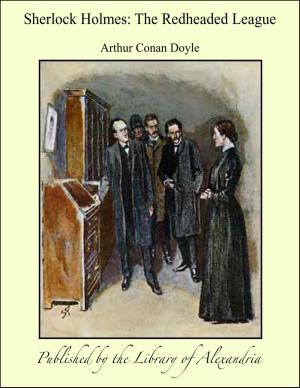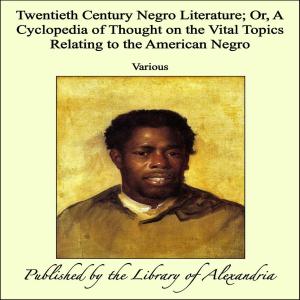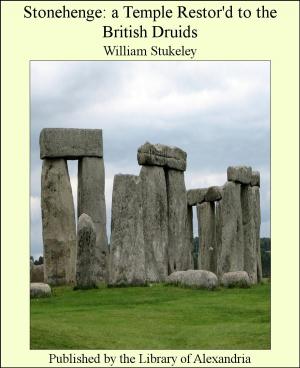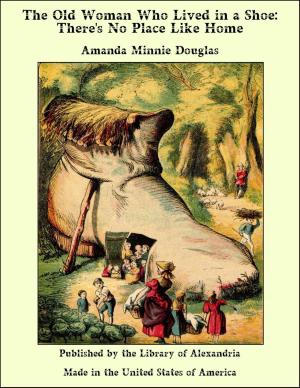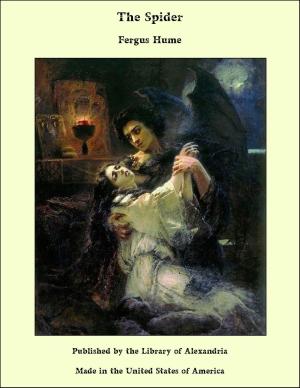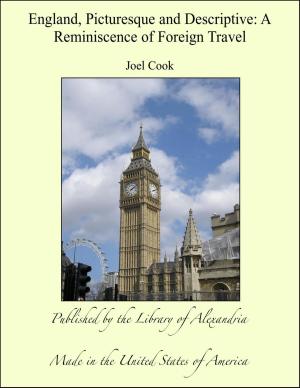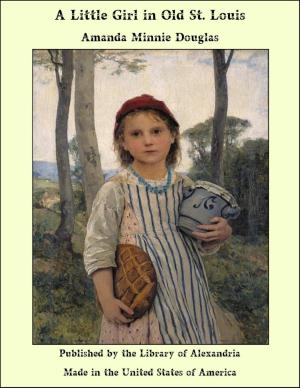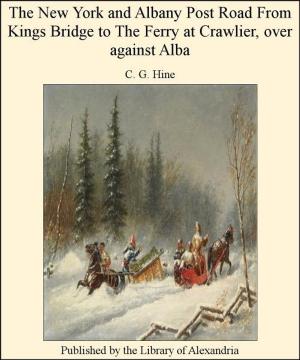Among the An-ko-me-nums: Flathead Tribes of Indians of the Pacific Coast
Nonfiction, Religion & Spirituality, New Age, History, Fiction & Literature| Author: | Thomas Crosby | ISBN: | 9781465616203 |
| Publisher: | Library of Alexandria | Publication: | March 8, 2015 |
| Imprint: | Language: | English |
| Author: | Thomas Crosby |
| ISBN: | 9781465616203 |
| Publisher: | Library of Alexandria |
| Publication: | March 8, 2015 |
| Imprint: | |
| Language: | English |
The An-ko-me-nums, as they call themselves, are a branch of the great Salish or Flathead family of Indians, whose territory is that part of the Pacific Coast now known as Northern Oregon, Washington, and Southern British Columbia. The Flatheads derive the name from their custom of compressing the skull in childhood until the whole front of the head is flattened and broadened. They live along the great arteries of travel, the Columbia River in the south, the Fraser River in the north, and their tributaries, as well as on the shores of those inland waters of the West known as Puget Sound and the Gulf of Georgia. Unlike the great nations of the East and of the plains, who possess something of national unity, they are composed of a number of branches, speaking languages bearing scarcely any resemblance to each other—the Chinooks, the Cayuses and the Sinahomish in the south; the Shuswaps and the Okanagans in the interior of British Columbia; and the An-ko-me-nums, known under such names as the Cowichans—after tribes on Vancouver Island, which some believe to be the parent stock—and the Stawlo, which literally means the River Indians. These last inhabit the valley of the Fraser River, from Yale to its mouth, and the east coast of Vancouver Island, from Comox to Esquimault, and include the Nan-ni-moohs, Cowichans, Songees, Skwamish, Sumats, Chil-way-uks, and numerous other rival tribes, possessed of the same manners and customs, but speaking varying dialects of the same language, and, in earlier days, engaging in the fiercest conflicts with one another. The Coast Indians are spoken of, generally, as Siwashes, a term which the more intelligent resent, and which is taken from the word for “Indian” in the Chinook or trade jargon. There is some doubt, however, as to the origin of the word “Siwash.” By some it is thought to be a corruption of the French word “Sauvage” (barbarian), as applied by the Nor’westers to the Indians generally. But in all probability it is a corruption of the generic term “Salish,” which is given by ethnologists to the whole family, and as such is improperly applied to the Northern tribes.
The An-ko-me-nums, as they call themselves, are a branch of the great Salish or Flathead family of Indians, whose territory is that part of the Pacific Coast now known as Northern Oregon, Washington, and Southern British Columbia. The Flatheads derive the name from their custom of compressing the skull in childhood until the whole front of the head is flattened and broadened. They live along the great arteries of travel, the Columbia River in the south, the Fraser River in the north, and their tributaries, as well as on the shores of those inland waters of the West known as Puget Sound and the Gulf of Georgia. Unlike the great nations of the East and of the plains, who possess something of national unity, they are composed of a number of branches, speaking languages bearing scarcely any resemblance to each other—the Chinooks, the Cayuses and the Sinahomish in the south; the Shuswaps and the Okanagans in the interior of British Columbia; and the An-ko-me-nums, known under such names as the Cowichans—after tribes on Vancouver Island, which some believe to be the parent stock—and the Stawlo, which literally means the River Indians. These last inhabit the valley of the Fraser River, from Yale to its mouth, and the east coast of Vancouver Island, from Comox to Esquimault, and include the Nan-ni-moohs, Cowichans, Songees, Skwamish, Sumats, Chil-way-uks, and numerous other rival tribes, possessed of the same manners and customs, but speaking varying dialects of the same language, and, in earlier days, engaging in the fiercest conflicts with one another. The Coast Indians are spoken of, generally, as Siwashes, a term which the more intelligent resent, and which is taken from the word for “Indian” in the Chinook or trade jargon. There is some doubt, however, as to the origin of the word “Siwash.” By some it is thought to be a corruption of the French word “Sauvage” (barbarian), as applied by the Nor’westers to the Indians generally. But in all probability it is a corruption of the generic term “Salish,” which is given by ethnologists to the whole family, and as such is improperly applied to the Northern tribes.

